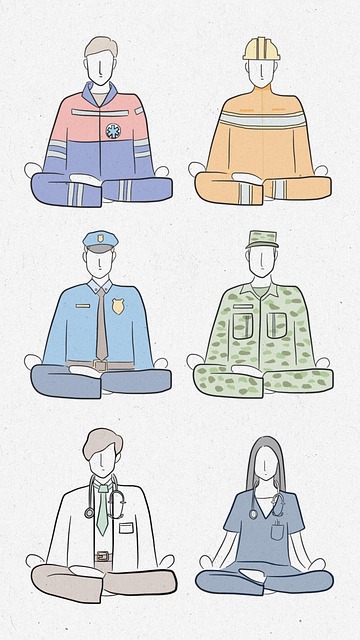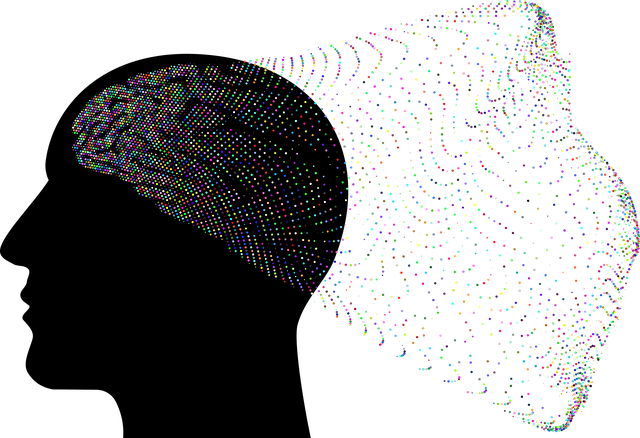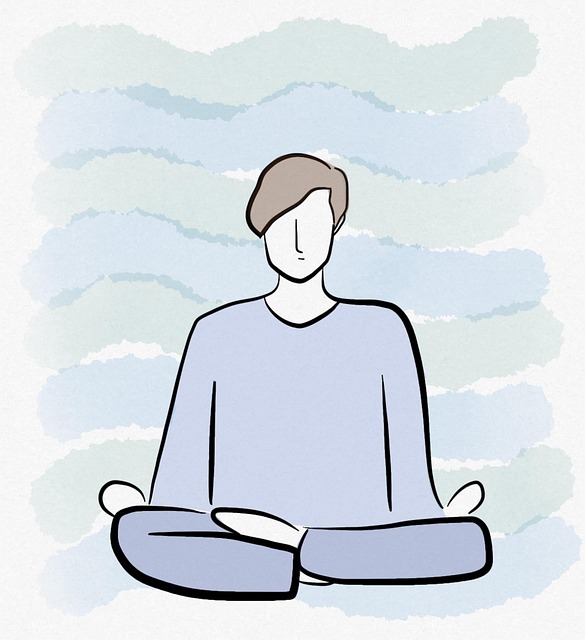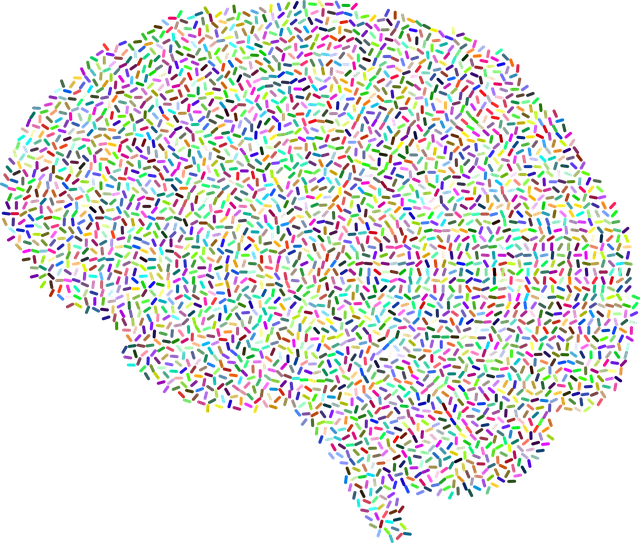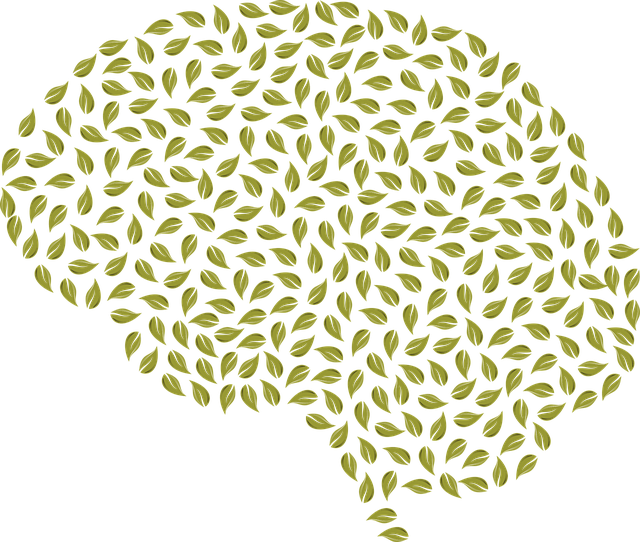Centennial Chronic Pain Therapy offers a holistic approach to managing chronic pain by addressing physical and mental health, creating personalized self-care routines, incorporating mindfulness, suitable physical activity, and healthy coping mechanisms. Cognitive Behavioral Techniques (CBT) empower individuals to overcome anxiety by challenging negative thought patterns and behaviors, supported by community outreach and mental wellness podcasts. Mindfulness and meditation, rooted in ancient traditions, focus on the present moment and cultivate non-judgmental awareness, breaking the cycle of anxious thoughts. Lifestyle adjustments like regular exercise, quality sleep, healthy eating, mindfulness practices, and engaging in joyful activities enhance overall well-being, improve mental resilience, and support Centennial Chronic Pain Therapy.
Anxiety management is a crucial aspect of navigating chronic pain, a complex relationship that often requires holistic approaches. This article explores various techniques designed to help individuals overcome anxiety and manage chronic pain effectively. From cognitive behavioral therapies to mindfulness practices and lifestyle adjustments, we delve into innovative methods like Centennial Chronic Pain Therapy, offering a comprehensive guide for those seeking relief and improved well-being.
- Understanding Chronic Pain and Anxiety: The Complex Relationship
- Centennial Therapy: A Holistic Approach to Chronic Pain Management
- Cognitive Behavioral Techniques for Overcoming Anxiety
- Mindfulness and Meditation: Calming the Anxious Mind
- Lifestyle Adjustments for Reducing Stress and Enhancing Well-being
Understanding Chronic Pain and Anxiety: The Complex Relationship

Chronic pain and anxiety often coexist, creating a complex interplay that can significantly impact an individual’s quality of life. What many may not realize is that these two conditions are deeply interconnected, with chronic pain serving as a trigger and manifestation of anxiety disorders. The persistent nature of chronic pain can lead to heightened stress levels, fear, and worry, exacerbating anxiety symptoms. Conversely, anxiety can cause individuals to focus excessively on bodily sensations, making them more attuned to even minor aches and pains, which can then be interpreted as chronic pain.
This intricate relationship necessitates a holistic approach to treatment, such as that offered by Centennial Chronic Pain Therapy, which focuses not only on managing physical symptoms but also on addressing the emotional well-being promotion techniques and cultural sensitivity in mental healthcare practice. Incorporating strategies like positive thinking can empower individuals to reframe their experiences, reducing the impact of anxiety and fostering a more adaptive response to chronic pain.
Centennial Therapy: A Holistic Approach to Chronic Pain Management

Centennial Therapy offers a holistic approach to chronic pain management, focusing on the interconnectedness of physical and mental health. This therapeutic model recognizes that chronic pain is not solely a physiological issue but also deeply influenced by emotional and psychological factors. By addressing these underlying aspects, Centennial Chronic Pain Therapy empowers individuals to take control of their well-being.
The process involves developing a tailored self-care routine that incorporates positive thinking strategies and fosters inner strength development. Patients are encouraged to explore mindfulness techniques, engage in regular physical activity suited to their capabilities, and cultivate healthy coping mechanisms. This comprehensive approach not only provides tools for managing pain but also promotes overall mental health and enhances one’s ability to navigate life’s challenges with resilience.
Cognitive Behavioral Techniques for Overcoming Anxiety

Cognitive Behavioral Techniques (CBT) offer a powerful approach to managing anxiety, as recommended by many Centennial Chronic Pain Therapy experts. This method focuses on challenging and changing unhelpful thought patterns and behaviors that contribute to anxious feelings. By identifying distorted thinking and replacing it with more realistic and positive thoughts, individuals can learn to control their reactions to stressful situations. CBT encourages patients to face their fears gradually through exposure therapy, helping them realize that their anxiety predictions often do not come true.
The effectiveness of CBT is supported by various studies, including those related to community outreach program implementations and mental wellness podcast series productions, which have shown its positive impact on mental health. Incorporating self-care practices alongside CBT can further enhance the process, providing individuals with a comprehensive toolkit to manage anxiety effectively in their daily lives.
Mindfulness and Meditation: Calming the Anxious Mind

Mindfulness and meditation have emerged as powerful tools in the arsenal against anxiety. By focusing on the present moment and cultivating a non-judgmental awareness, individuals can begin to unravel the intricate web of anxious thoughts that often leads to a cycle of distress. This practice, deeply rooted in ancient traditions, has gained prominence in modern psychology for its effectiveness in managing not only anxiety but also chronic pain conditions, as explored in Centennial Chronic Pain Therapy.
Meditation encourages the development of inner strength and confidence boosting by teaching individuals to observe their thoughts without getting swept away by them. Incorporating a self-care routine development for better mental health, mindfulness practices can help alleviate symptoms, promote relaxation, and foster a sense of calm. Through regular meditation, one can learn to quiet the mind’s chatter, enhancing the ability to navigate life’s challenges with resilience and composure.
Lifestyle Adjustments for Reducing Stress and Enhancing Well-being

In the pursuit of managing anxiety and enhancing overall well-being, lifestyle adjustments play a pivotal role. Simple yet effective changes in daily routines can significantly reduce stress levels and promote a sense of calm. For instance, incorporating regular physical activity, such as walking or yoga, into one’s schedule can boost mood and decrease anxiety symptoms. Additionally, prioritizing quality sleep and adopting healthy eating habits contribute to better mental resilience. These adjustments not only help in Centennial Chronic Pain Therapy but also foster self-esteem improvement by empowering individuals to take control of their well-being.
Beyond physical health, cultivating a positive mindset through practices like mindfulness meditation or journaling can strengthen inner strength development. Engaging in activities that bring joy and connecting with supportive communities further enriches mental health policy analysis and advocacy efforts. By integrating these lifestyle changes, individuals can create a more balanced and resilient life, effectively managing anxiety and enhancing their overall quality of life.
Anxiety management is a holistic journey, especially for those dealing with chronic pain. By combining traditional cognitive behavioral techniques with innovative practices like mindfulness meditation, individuals can find effective solutions. Centennial Chronic Pain Therapy offers a comprehensive approach, addressing the intricate relationship between pain and anxiety. Through lifestyle adjustments, stress reduction, and evidence-based treatments, one can navigate their anxious mind towards calmer waters, ultimately enhancing overall well-being.





